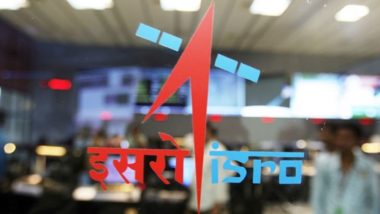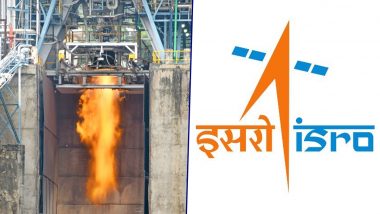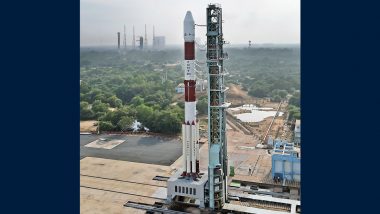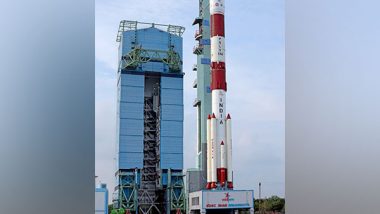Sriharikota, December 17: The first quarter of 2021 will see Indian space agency's till ringing with the commercial launch of Brazilian satellite Amazonia as well as three Indian satellites, said a top official.
"End of February or early March 2021, we will be sending our rocket Polar Satellite Launch Vehicle-C51 (PSLV-C51). The primary payload will be the Brazilian satellite called Amazonia an earth observation satellite," K. Sivan, Chairman, Indian Space Research Organisation (ISRO), told IANS.
"The PSLV-C51 mission will be a very special mission not only for ISRO but also for India as the rocket will be carrying the earth observation satellite Anand made by an Indian startup called Pixxel (Incorporated as Syzygy Space Technologies Pvt Ltd)," Sivan said. PSLV-C50 Mission: CMS-01 on Board Launch Vehicle Lifted-Off Successfully From Satish Dhawan Space Centre in Sriharikota.
"Within eight months of setting up of Indian National Space Promotion and Authorisation Centre (IN-SPACe) after the government announced the opening up of the space sector for private players, ISRO will be launching the first satellite of an Indian startup," Sivan added. He said the Pixxel satellite will be an advanced earth observation satellite.
The Bengaluru-based private satellite company Syzygy Space Technologies Pvt Ltd, commonly known as Pixxel, plans to have its constellation of 30 small earth observation satellites up in the sky by the end of 2022.
Queried whether ISRO will be offering a bulk rate for Pixxel to launch its satellites, Sivan answered in affirmation.
"Pixxel's first satellite is for demonstrating the technology. The company also said they would like to launch their satellites with our rocket," Sivan said.
"Our second satellite will be flown by US company SpaceX next year. We have looked at various options, including Russian rocket. We would prefer ISRO as logistically it is convenient for us," Awais Ahmed, Chief Executive Officer, Syzygy Space Technologies, had told IANS. PSLV-C49 Rocket, Carrying EOS-01 Satellite, Successfully Launched by ISRO From Sriharikota; All You Need to Know.
According to Ahmed, the company will also look at ISRO's Small Satellite Launch Vehicle (SSLV) for future launches as it would work out cheaper. Normally, a rocket company charges a carriage fee between Rs 20,000 and Rs 25,000 per kg. The SSLV may work out cheaper, he had said.
Sivan also said the PSLV-C51 rocket will carry a communication satellite built by the students part of city-based Space Kidz India and another satellite built by consortium of three Indian universities.
(The above story first appeared on LatestLY on Dec 17, 2020 06:14 PM IST. For more news and updates on politics, world, sports, entertainment and lifestyle, log on to our website latestly.com).













 Quickly
Quickly




















